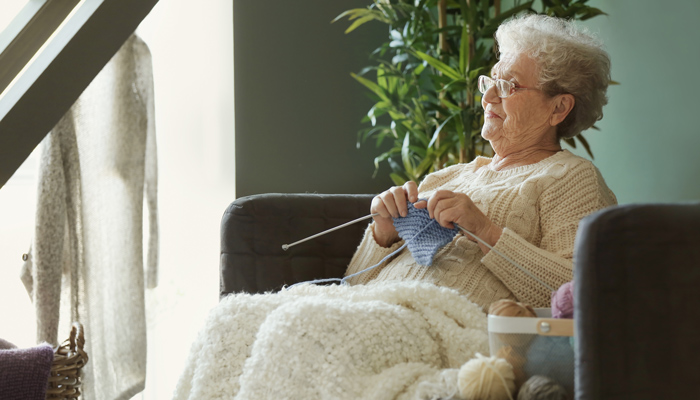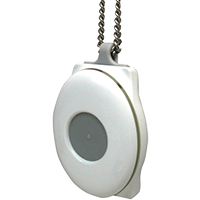
How to reduce your feelings of loneliness
We humans thrive in communities. It can be a gathering of relatives, neighbours, volunteers, or sports teams. Building a community, appears to be simpler when life sets us up to join specific groups such as meeting other parents through childcare, school, clubs, neighbourhood activities, and so on. Our communities might shrink as time passes and we go through the typical ups and downs of life. This can leave our seniors alone for most of the day, resulting in feelings of loneliness.
Loneliness and social isolation, according to experts, are related with an increased risk of health issues such as heart disease, depression, and cognitive decline. According to research, social isolation is as detrimental for your health as smoking.
Why are elders particularly vulnerable?
Older individuals are at an elevated risk of loneliness and social isolation because they are faced with issues such as living alone, the death of a family or friend, chronic disease, and/or hearing loss. A clear example of this isolation is with the recent pandemic that made it difficult to visit our vulnerable seniors.
This doesn’t imply we have to be lonely or alone, but we have to transform our lives by participating in activities we enjoy and joining new communities, making new friends, gaining new skills, either in person or online.
Here are some suggestions for reducing social isolation and feeling less lonely:
Talk with family, friends and strangers.
Talking to someone about your feelings or observations is the best way to alleviate feelings on loneliness. Talking on the phone, in person or online to a partner, friend, family member, neighbor or even strangers on the internet can result in a new friend or connection. You can talk about anything from your day, the weather or an interest you may share with your fellow conversationalist. Asking for advice from others is a terrific approach to develop a community and exchange ideas. Once a conversation starts you can start making plans and develop new friendships.
Make a list of the things you enjoy doing.
Sometimes we only need to be reminded of what we enjoy doing. Knitting, strolling, conversing on the phone, volunteering, there are so many possibilities! Once you’ve made a list, search for methods to work those activities back into your daily life by combining your interests with a cause, group or form a club for people who share your passion.
Get a pet.
A lack of purpose can add to feelings of loneliness or isolation, and having a buddy to hug, walk, or care for can make life more enjoyable. Check out your local shelter and ask the staff to recommend an animal that is suitable for your lifestyle. If you no longer move around a lot, they may have an older pet who can cuddle with you on the sofa. Whatever pet you choose, adopting a pet can help improve two lives.
Keep Active
Join a local walking club or form one of your own if you are able. Walking is extremely beneficial to your health and improves your mood both during and after you walk. Walking with someone else keeps you encouraged to go again, passes the time, and eliminates the sensation of solitude. You may sometimes just walk around your house from room to room to get those steps in if you are unable leave the house. Any kind of activity is better than none, even if you just take a stroll around your garden.
Keep your brain active
If walking isn’t your thing, you may want to sign up for an online class where you can do exercises or learn a new skill together. Local communities frequently provide low-cost programs that teach a new language, skill, or practical skills like cooking. If learning isn’t your thing you may enjoy puzzle games on your smartphone or computer. Games can keep you thinking and are a fun, relaxing way to keep your brain active.
Join a social club
There are many social groups both on and off the internet to unite you with others who share interests with you or can organise fun activities. They provide an instant sense of camaraderie and give your enjoyment a purpose. You can look for clubs in your local area, join a national organisation or search for online groups to share your thoughts and ideas with likeminded people.
Build a support network
Seniors need someone to talk with and people they can reach out to ask for help. Ask friends and family if they are happy for you to call them in case of an accident or emergency and arrange a time they can call to check in with you occasionally. If you don’t have any nearby family or friends you may consider purchasing an APERS emergency response system. This medical alert system enables you to call for assistance at the push of a button and is perfect for those without a support network or nearby family to call upon. Enjoy the peace of mind that comes from knowing that no matter what happens help and support are only one button away.
Call 1300 852 148 for more information on APERS medical alert devices, or send us a message from the contact us page if you have any questions.
APERS Support Products

Featuring surgical grade stainless steel, the Pearl Pendant allows you to wear your Medical Alert Alarm around your neck.

With a durable polyurethane strap, the Pearl Wristwatch enables you to wear your Medical Alert Alarm around the wrist.

The APERS Freedom Friend is a 4G GPS emergency device that allows you to contact help anywhere anytime.

